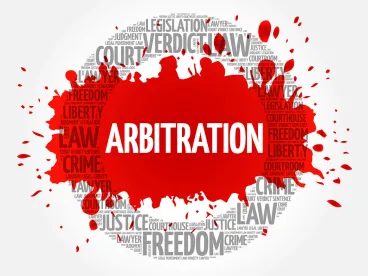On Monday, May 21, 2018, the Supreme Court of the United States issued a 5-4 opinion, authored by Justice Gorsuch, in Epic Systems Corp. v. Lewis. This case combined three like-cases and dealt with arbitration agreements and their enforceability as they relate to class actions.
Plaintiffs entered into an agreement with their employers agreeing that they would arbitrate any disputes that might arise between them and that specified individualized arbitration, with claims “pertaining to different employees to be heard in separate proceedings.”
After the employment relationship ended, the plaintiffs sued in federal court stating that certain employees were misclassified and sought to litigate the claim under the Fair Labor Standards Act’s collective action provision on behalf of a nationwide class.
The plaintiffs used three different arguments to claim that their class action was outside the scope of the arbitration agreement. The Court, however, found none of their arguments persuasive, including that the National Labor Relations Act’s protection of “concerted activities” does not displace the Arbitration Act. The Court stated that “the policy may be debatable but the law is clear: Congress has instructed that arbitration agreements like those before us must be enforced as written.”
The result of this case is an affirmation that the Arbitration Act (an Act adopted in 1925 that directed courts to treat arbitration agreements as “valid, irrevocable and enforceable” with certain exceptions) requires the enforcement of individualized proceedings, absent “generally applicable contract defenses such as fraud, duress, or unconscionability.” In other words, if an employee has signed an arbitration agreement that would normally be enforced and that arbitration agreement requires individualized proceedings, a court is going to enforce the agreement and prevent a potential class action.
This decision is favorable for employers, especially in industries where class action lawsuits are likely to arise. In the healthcare industry alone, during fiscal year 2017, the Department of Labor pursued 1,288 cases for wage and hour violations involving 15,374 employees and awarded $12.3 million in back wages. If some of those employees had formed a class, damages or settlements from the action could have been much higher. However, with the Court’s ruling in Epic Systems Corp., if the employer has an arbitration agreement that calls for individualized proceedings, those employees would be unable to litigate or arbitrate as a class.
Senator Richard Blumenthal introduced the Arbitration Fairness Act of 2018 the day after Epic Systems Corp. was released. This Act, if passed, would require arbitrations to be entered into after a dispute arises—i.e., it would make predispute arbitration agreements unenforceable if they require arbitration of an employment dispute, consumer dispute, antitrust dispute, or civil rights dispute—effectively counteracting the Court’s ruling. However, the bill is unlikely to pass with the current composition of Congress.



 />i
/>i

